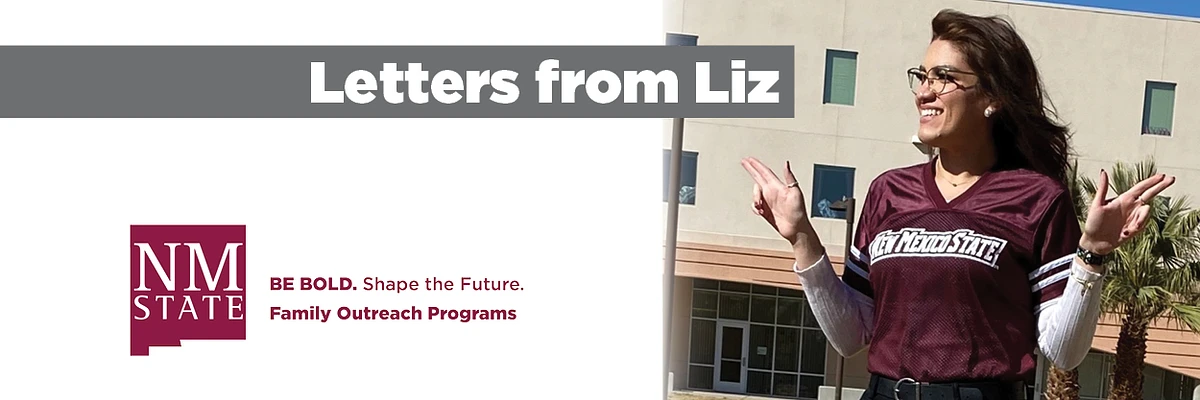Hi there, Aggie Families,
A long time ago, and I exaggerate with time because this has been the longest year ever it seems, but a while ago I was a first time freshman in the middle of my first semester of undergrad. Now, mistake #1 I made was not going to NMSU, and I don’t say that lightly, but mistake #2 was that I never asked for help. It may seem like something trivial, because in concept, it’s not that hard to ask for help. Your students walk up to an office, send an email, give a call, and say I need help. Easy enough, right? Well, not exactly. For students, asking for help comes with stigmas; and they’re different than the social stigmas I mentioned in my last letter in terms of mental health, but still ever present and impactful.
I’m a first-generation college student, like many of your students. I had absolutely no idea what I was doing half the time, but I knew that my family expected me to get a degree because my parents said that was the best move to set myself up for the future. I have a funny story about my first semester as we’re heading into the space where it’s time for your students to register for their Spring semester courses. I originally entered my freshman year declared as one specific major. My first semester was fine; I learned very quickly that having class every single day was an awful choice for me and I missed a lot of that 7:00am lecture I swore I was going to be fine with. When it came time to get advised, I found out that my major required group advising where you signed up for a session, sat with others like yourself, talked about your successes and worries, and chose courses together for the next semester. I was HORRIFIED. I thought if I sat in a room with other people, other people who I was certain knew exactly what they were doing and where they were going, and never missed their 7:00am lecture, they would see right through me, know I didn’t belong there and that would be the end of my college career. So the very next day, I went to our college’s office, looked at all of the majors and officially changed my major to something that did not have group advising and sounded interesting.
I don’t regret changing my major at all, because I fell in love with my new area quickly and I still love it, but my reason for finding it was ridiculous. If there’s anything I regret about my college experience it’s not getting involved and not asking for help. The only reason that I excelled from my junior year on was because my faculty advisor, who I happened to have a class with, saw that I was struggling and extended a hand to help me, to mentor me; otherwise, I probably wouldn’t have finished my first degree. Right now, especially in a virtual environment where students are not seeing the people who can help them regularly as they would if we were fully on campus like before the pandemic, it is easy for them to fall through the cracks and feel like they don’t know what to do or where to go.
There’s no straight line from setting foot in your first class to having your name read out loud at graduation. I can’t provide you an end all be all guide to success for your students; I would if I could. What I can tell you is that a great way to support your students is to have conversations with them that empower them to ask questions or seek support from offices on campus. Rather than asking them why they don’t know or why they haven’t looked at something yet, tell them you saw that registration opens for their classification on (insert their date from the schedule found here) and ask them about what classes they’re most excited for for next semester. If they’re not sure or say they haven't looked/ thought about it, recommend they make an appointment to meet with their academic advisor. Their academic advisor is there for them to discuss their options and help map out their pathway for next semester. Appointments for Spring advising will be available starting next week; students can reach out to their advisor through email or Microsoft Teams for more information. Here’s a handy guide from the Center for Academic Advising and Student Support (CAASS) as well about how they can schedule their appointment through the Navigate app. Some students may have other requirements and advisors, and they should each know exactly where they need to go, but most students meet with CAASS.
We all need helpful nudges from time to time, and now is definitely a good chance to give them one for advising and registration for next semester. I hope it opens up discussions which create a deeper level of connection for you and your student. Happy nudging!
Also, there are no actual bears in this letter, I’m sorry.
All best for now,
Liz



